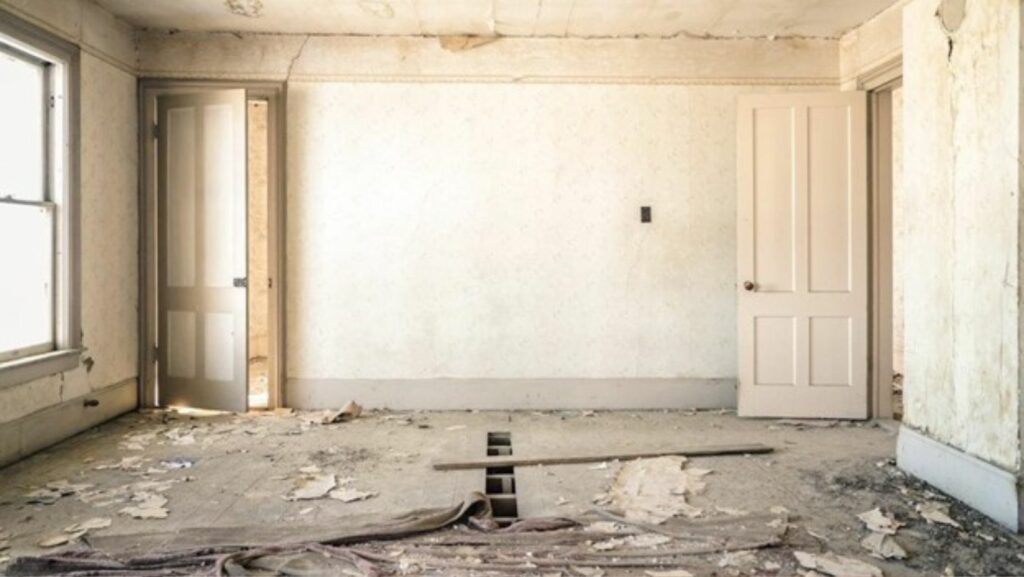- Plan ahead by assessing the renovation scope and creating a waste management plan to streamline the process.
- Reduce waste before it starts by choosing sustainable materials, reusing existing items, and ordering precise amounts.
- Sort and recycle materials effectively by setting up designated bins and identifying recyclable items.
- Donate or sell unwanted items to minimize waste, utilizing local organizations and online platforms.
Home renovation projects, whether a small bathroom update or a complete kitchen remodel, can be both exciting and daunting. Amidst the excitement of transforming your living space, there’s often one significant challenge: managing the waste generated during the renovation process. Proper waste management is crucial not only for keeping your project organized but also for minimizing its environmental impact. Let’s explore effective ways to manage home renovation waste hassle-free.
Planning Ahead
Effective waste management begins with proper planning. Before you start tearing down walls or ripping up floors, take the time to assess the scope of your renovation project. Determine what kind of materials you will be dealing with and estimate the amount of waste that will be generated. This foresight allows you to create a comprehensive waste management plan that aligns with your project timeline and goals.
- Scope and Materials: List all the tasks involved in the renovation and identify the types of waste each task will produce. Common renovation waste includes wood, metal, drywall, tiles, and packaging materials.
- Waste Management Plan: Outline how you will handle each type of waste. Decide which materials can be recycled, reused, or need special disposal. Allocate specific areas on your property for waste segregation.
Reducing Waste Before It Starts
The most efficient way to manage waste is to reduce it before it even starts. This involves making smart choices about the materials you use and how you approach the renovation process.
- Sustainable Materials: Opt for eco-friendly, sustainable materials that are recyclable or have a longer life span. Materials like bamboo, reclaimed wood, and recycled metal can significantly reduce your renovation’s environmental footprint.
- Reuse and Repurpose: Before discarding existing materials, consider if they can be reused or repurposed. Old cabinets, doors, and fixtures can often be given a new life with a bit of creativity.
- Precise Ordering: To avoid excess waste, measure accurately and order precise amounts of materials. For example, when purchasing cut to size MDF, ensuring precise measurements helps reduce waste and save money.
Sorting and Recycling
Proper sorting and recycling are essential components of effective waste management. Many materials from home renovations can be recycled, reducing the amount of waste that ends up in landfills.

- Sorting Waste: Set up designated bins or areas for different types of waste—wood, metal, glass, plastics, and general debris. This makes it easier to recycle and dispose of materials properly.
- Recyclable Materials: Identify materials that can be recycled. Wood, metal, glass, certain plastics, and even some types of drywall can be recycled. Contact local recycling facilities to understand their specific requirements and processes.
- Recycling Station: If possible, set up a recycling station on your property to sort and temporarily store recyclables. This streamlines the recycling process and ensures that materials are handled efficiently.
Donating and Selling Unwanted Items
Not all renovation waste needs to be disposed of. Many items can be donated or sold, giving them a second life and reducing waste.
- Donating Items: Identify items in good condition that can be donated, such as appliances, fixtures, cabinets, and furniture. Organizations like Habitat for Humanity and local charities often accept these donations.
- Local Organizations: Research local organizations and donation centers that accept renovation materials. Some may even offer pickup services, making the donation process convenient.
- Selling Online: Consider selling usable items online through platforms like Craigslist, Facebook Marketplace, or eBay. Hosting a garage sale is another great way to find new homes for your unwanted items.
Hiring Professional Waste Removal Services
Sometimes, the volume or nature of renovation waste necessitates hiring a professional waste removal service. These services can save you time and ensure that waste is disposed of responsibly.
- Benefits: Professional waste removal companies handle all aspects of waste management, from sorting and recycling to disposal. They have the expertise and equipment to manage large volumes of waste efficiently.
- Choosing a Company: Research and compare local waste removal companies. Look for those with good reviews, proper licensing, and a commitment to environmentally friendly practices.
- Costs and Services: Understand the costs involved and what services are included. Some companies offer comprehensive packages, while others may charge extra for recycling or disposal of certain materials.
DIY Waste Disposal
For those who prefer a hands-on approach, DIY waste disposal is a viable option. Renting a dumpster or skip bin provides a convenient solution for collecting and disposing of renovation waste.

- Renting a Dumpster: Choose a dumpster size appropriate for your project’s scope. Many waste management companies offer flexible rental periods to accommodate your renovation timeline.
- Safety Tips: Ensure safe handling of waste materials. Wear protective gear, such as gloves and goggles, and be cautious when lifting heavy items. Keep the work area tidy to prevent accidents.
- Local Regulations: Familiarize yourself with local regulations regarding waste disposal. Some materials may require special handling or disposal methods. Check with your municipality for guidelines and disposal sites.
Conclusion
Managing home renovation waste effectively requires a combination of planning, reducing, recycling, and possibly hiring professional help. By adopting these strategies, you can ensure a hassle-free renovation process that is both organized and environmentally responsible. Proper waste management not only keeps your project on track but also contributes to a more sustainable future. Embrace these practices, take charge of your renovation waste, and enjoy the transformation of your home with peace of mind.


More Stories
Casino Bonuses for Beginners: How to Avoid Traps and Use Offers Wisely
How to Troubleshoot a Broken Furnace During a Winter Storm
How Real Estate Enterprises Are Protecting AI Systems Against Cybersecurity Threats